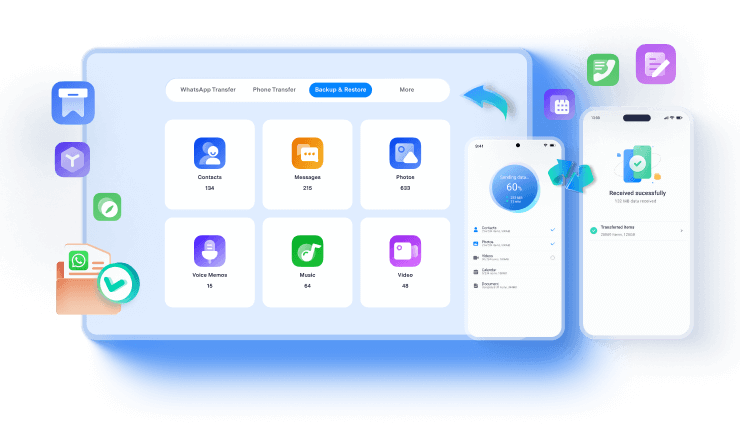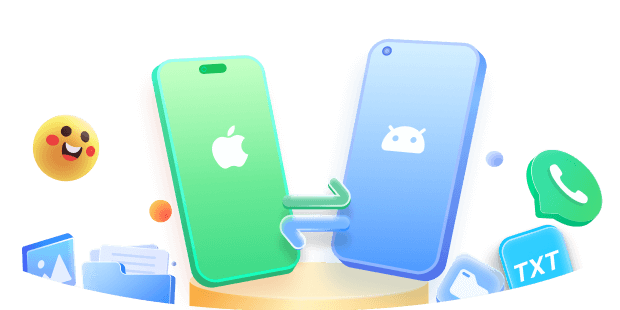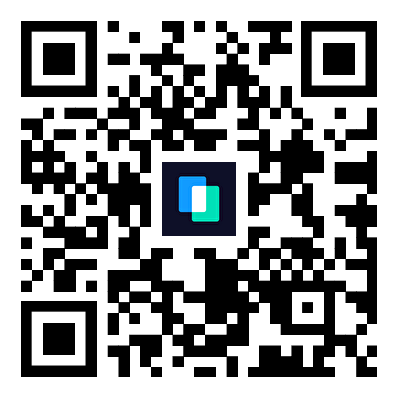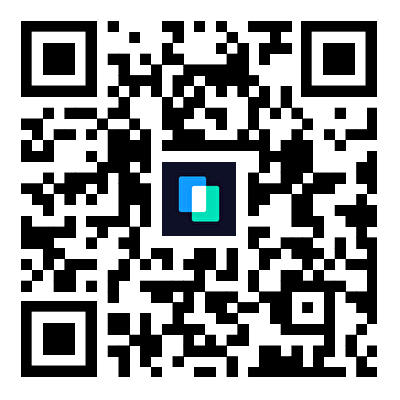With too many mobile devices within the office premises, security has become a major concern for IT managers. As soon as your employees connect their personal devices to the company's network, your valuable data gets put at a vulnerable stage as any hacker could easily steal it. This is the reason why MDM (Mobile Device Management) solutions have become a necessity in today's world.
It doesn't matter if you own a startup or a large-scale organization, investing in MDM implementation will help you keep the company's privacy intact and manage all the mobile devices at the same time. To help you understand more precisely, we are going to share a detailed insight into the importance of MDM solutions for companies in 2021.
We'll also explain how investing in MDM implementation will help you enhance overall productivity and maintain high work efficiency. So, without any further ado, let's get started.
Part 1: Here's My Personal View
In the modern-day business spectrum, mobile device management has become extremely useful. Since companies heavily rely on mobile devices (including smartphones, laptops, tablets, and PCs) to execute different operations, it's crucial to implement a dedicated solution that allows the IT managers to precisely monitor all of the devices and ensure that there's no scope for data theft whatsoever.
In our opinion, mobile device management is something that businesses can't overlook, especially when data theft has become more and more common. With an MDM solution, you'll not only manage all the devices with more precision, but it'll also become easier to ensure 100% privacy within the organization, irrespective of the mobility policies you implement.

Part 2: What Is Mobile Device Management About?
Now, before giving away the top benefits of mobile device management, let's first understand the basic functionality of MDM solutions and how they work. Here are a few points that'll help you understand the basics of how MDM tools work.
1. Client/Server Architecture
Whether you choose a cloud-based MDM solution or the regular on-premises server, the tool will follow the traditional client/server architecture. In this architecture, the central machine acts as the server whereas the end devices (used by your employees) act as the client.
IT managers have full control over the server and can easily manipulate features and settings on the end devices remotely. This means you could decide what types of settings your employees could access on the mobile devices in your organization.

2. Server Location
When it comes to choosing an MDM solution, you could either pick a cloud-based tool or install the server within the office premises. Both these MDM implementation types have their own benefits and drawbacks.
For instance, the installation and maintenance cost for on-premises servers is relatively higher, but these types of servers can be used to manage even thousands of mobile devices. Cloud-based MDM solutions, on the other hand, are cheaper and offer support for limited devices only.

3. Central Control
Due to their client-server architecture, all the MDM solutions offer central control for the configured mobile devices. This means that the admin (or designated IT manager) could easily monitor all the devices and even track their activities.

Part 3: Why's Mobile Device Management Important - Here Are 10 Reasons
Now that you've got a basic understanding of MDM's functionality, let's start with the importance of MDM for modern-day enterprises. The following points will help you understand how MDM implementation can cater to your company's productivity and streamline different business operations easily.
Reason 1: Manage Devices Remotely
Remote device management is a major reason why companies should invest in MDM implementation. When your organization has thousands (or even hundreds) of mobile devices, it can become quite challenging to keep a check on them. Not to mention, if you have a small IT team, it'll be impossible to check the activity status of each device.

This is where Mobile Device Management (MDM) solutions will prove to be beneficial. Thanks to their automation support, you'll be able to manage multiple mobile devices without any hassle. The majority of MDM solutions provide a detailed activity report to help the admin understand how the end devices are being used by the employees.
Reason 2: MDM Implementation is Cost-Effective
While it may seem a bit hard to digest at first, implementing an MDM solution in your organization will be one of the wisest financial decisions you'll ever make. How? With MDM implementation, you can also introduce BYOD (Bring Your Own Device) policy in your organization.

This will protect you from spending thousands of dollars on mobile devices because the employees will bring their own devices and use them to execute the desired operations. And, since there will be no company-owned devices, you won't have to worry about bearing the loss for stolen/lost devices. Cost-effectiveness is the crucial importance of MDM implementation that makes it necessary for both startups and large-scale organizations.
Reason 3: Automatic Storage Optimization
Today, many MDM solutions also offer automatic storage optimization features. This means whenever a mobile device (that's enrolled into the MDM tool) will start to run out of storage, the MDM solutions will automatically detect and delete unnecessary files.
Thanks to this exclusive feature, the IT managers won't have to manually check the storage for each device after every few days. The tool will automatically optimize the storage on the end devices so that the employees don't encounter any unexpected errors while performing their daily tasks.

Reason 4: Schedule and Create Data Backups
Data loss can happen due to a wide variety of reasons. Let's say one of your employees accidentally damages or loses a company-owned device that contains the company's valuable data. Fortunately, with an MDM solution, you won't have to deal with data loss at all.
Almost every MDM solution offers an “automatic data backup” feature. You can schedule the backup time/date and the tool will automatically back up all the data from the target devices and save it on the central server. This way even if one of the devices gets stolen or goes missing, you'll be able to retrieve the lost data easily.

Reason 5: Remotely Manage Device Updates
One of the major advantages of Mobile Device Management (MDM) implementation is the ability to remotely install new software updates. It's no secret that managing software updates across all devices in the organization is probably the biggest challenge for any IT manager. Of course, you could individually install updates on each device, but that would become hectic and time-consuming.
So, what's the next best solution? The answer is an MDM solution. With your MDM tool, you'll be able to remotely install new software updates across all the end devices easily. Many MDM tools offer a one-click solution to install software updates, which will save your company valuable time.

Reason 6: Application Management
Application Management is another factor that describes the importance of MDM in enterprises. With an MDM tool, you can control all the applications on the target devices and monitor their activities as well.

If you have implemented a BYOD policy in your organization, you can also create separate device groups to decide which apps need to be installed on employee's personal devices and company-owned devices. In addition to this, you'll also be able to remotely add and delete apps from mobile devices.
Reason 7: 100% Security
MDM tools also help IT managers secure sensitive information against data theft. With MDM implementation, you can create dedicated security policies to ensure that none of the end devices leak information, even if they are employees' personal smartphones.
Apart from this, you can also apply exclusive encryption mechanisms across all the devices to ensure that none of the unauthorized users could access any information from the end devices.

Reason 8: Remote Lock/Wipe End Devices
In case the device gets stolen or goes missing, the MDM tool will also allow you to remotely lock the device to restrict unauthorized users from accessing it. Though you can also track the whereabouts of the device, in case it is not possible to recover it, you can either lock the device or erase all the data. This will help you ensure that your company's important data doesn't go into the wrong hands.

Reason 9: Optimize Workflow
With your MDM solution, you can also optimize the overall workflow to enhance work efficiency within the organization. Through your MDM tool, you'll be able to quickly assign jobs to employees and send them daily goals via push notifications. At the end of the day, the employees could submit the activity progress and you could analyze the report to ensure that the productivity doesn't get compromised at all.

Reason 10: Enterprise System Integration
Finally, another factor that makes MDM important is its ability to easily integrate existing system infrastructure. Many MDM tools support system integration that'll allow you to easily integrate the old mobile devices into the network and synchronize them with the new devices. This will further make it easier to transfer data between the devices without leaking any sensitive information at all.

Key Takeaways from This Episode
- If you want to maximize work efficiency, using mobile devices will be important.
- However, to ensure that the mobile devices don't leak your company's sensitive data and manage them more effectively, you'll need a dedicated MDM solution for the job.
- Now, choosing the right MDM will depend on your company's requirements and business goals. For instance, if you run a small organization with a limited number of mobile devices, you could sign up for a cloud-based MDM tool.
- Similarly, if you want an MDM solution to manage thousands of mobile devices, it would be better to install the on-premises MDM server.
New Trendings
Top Stories
All Categories










Axel Nash
staff Editor